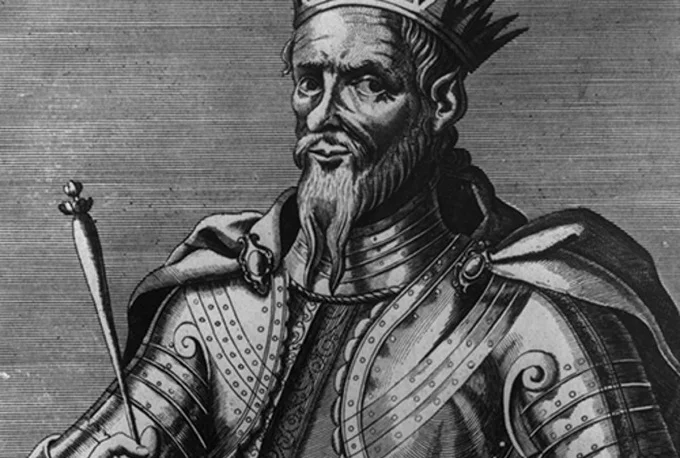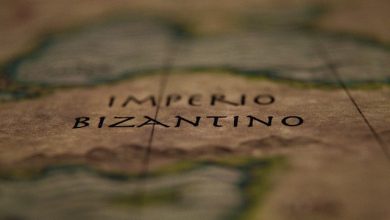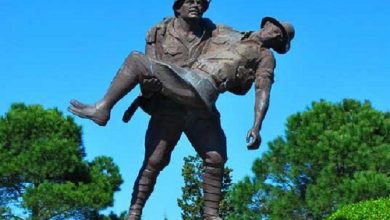How Attila the Hun leader conquered Europe and made Roman Empire ‘pay for peace’

Attila the Hun, is one of the evilest figures of antiquity. A warrior and ruler who held almost all of Europe in fear.
Even the rulers of ancient Rome reckoned with him. No one knows where or when he was born, but Attila was nicknamed ‘the instrument of God’s wrath after his wish to massacre the nations. Surprisingly, for all his cruelty and aggressive foreign policy, in a sense, he could be called a peacemaker.
Who were the Huns that ruled from the Volga to the Rhine?
The Huns were one of many tribes. At first, they were not particularly dangerous to neighboring territories. Until they started to horde their lands, sweeping away towns and villages, swooping like locusts, and stealing everything of any material value.
Many historians speculate that they were originally a Xiongnu tribe that inhabited the steppes north of China. In the 3rd century, they had to leave their homelands to find a new habitat. But the Huns did not want to travel peacefully; they conquered and joined to themselves all met Tibetan, Siberian and other peoples. Even the Scythians and Alans suffered. Only at the very border of the Roman Empire did the Huns stop.
The Romans were aware of their restless neighbors but looked down on them as savages, a little too much to ask. Their contemporaries claimed that the Huns were evil and wild, eating raw meat and warmblood and dressed in raw animal skins. What was much more unusual for the Romans was that the Huns had no unified religious system. Coming from different tribes and peoples, they worshipped their deities. Or didn’t believe in any.
One thing was certainly true of the Huns, and even haters of the tribe agreed on one thing – they were consummate warriors. The empire’s inhabitants recognized the danger of the Huns and therefore preferred not to clash with them. But avoiding the Huns was not so easy. This tribe ruled by fire and sword over a vast territory from the Volga to the Rhine and guarded the shores of the Black Sea and the Baltic Sea.
Attila the Hun leader
No definitive historical record had survived, which would make it possible to know when and where Attila, the most famous leader of the Huns, was born. All we know is that Attila killed his brother Bleda to become the leader of the Huns. This happened in 445 A.D. Now, the Huns were indeed a real danger to the Roman Empire. Some of their exploits even became a motif for the “Song of the Nibelungs“.
Attila was by Hunnish standards a good ruler: he loved wine, women, and hiking on wealthy neighbors. The common people appreciated the leader. Attila never boasted of his origins or his wealth. He was not arrogant and even ate from a simple wooden bowl, not a golden bowl, and stood up to the hardships of traveling.
In 447, he turned his attention to Byzantium, whose gilded temples were beckoning to grab them. It only took Attila a few months to wipe out all the defenders of Byzantium with his horde and demand from the ruler a tribute. Attila demanded only 2,000 kg of gold as a down payment and 700 kg every year as tribute.
Attila traded prisoners, too; he agreed to return every captured Byzantine for 12 gold coins. The Byzantine ruler was extremely unhappy with this arrangement. The aristocracy has not hastened to part with the blood money; therefore, indemnification payment has raised taxes. Because of it, simple people practically have become impoverished and have appeared on the verge of revolt. Constantinople has tried to solve a problem cardinally, but the hired assassin could not even touch Attila.
Huns on the watchword of peace
The Huns were not only constantly at war with their neighbors but also offered their services as mercenaries. Surprisingly, they were often peacemakers due to their power and danger, ending armed conflicts with their mere appearance.
The Huns were allies of the Roman emperors. They took part in suppressing internal revolts in the empire, besieging other insolent barbarians. Attila was even appointed honorary general of Gaul. However, none of this was on a charitable basis.
Attila demanded tribute payments in gold from the emperors. This was the “prince of peace” on the borders, a tribute that was not easy to pay. On the other hand, any defectors from the Hun’s army always found a place in the Roman legions, which did not please Attila. To discourage any desire to welcome deserters, the Hun ruler increasingly increased his demands and tried to destabilize the Romans.
Search for a woman
Attila’s troubles and series of setbacks began with the appeal of Princess Honoria, sister of Emperor Valentinian III. Honoria knew whom to ask for help. Her mother, Placidia, had once been captured by the Visigoths and married to Ataulf, a Visigoth and barbarian leader. Honoria, like her brother, was born into Placidia’s second marriage. However, old connections made it possible to contact Attila and ask him to rescue her from her imprisonment in exchange for the marriage.
Attila had a harem of wives. Another he had absolutely no need, but his marriage to Honoria could open him a legal path to the throne of the Western Empire. The emperors understood this. So Attila decided to get himself a bride by fighting. On 23 June 451, the combined forces of the Visigoths, Burgundians, and Romans almost crushed the whole horde. Attila had to hastily retreat.
Defeat did not make Attila swallow his tail and give up on new conquests. Within a year, the re-assembled horde set out to conquer Italy. Attila did not venture deep into the Roman Empire – at that time, there was another outbreak of plague, which thoroughly thinned out the Hunnish army. However, the epidemic did not save the empire from paying a huge tribute. It is amusing, but the Pope has declared the Hunnic horde ” the scourge of God, “ostensibly God has sent them to Catholics as punishment for sins.
A wedding, a young wife and an awkward end
Attila decided that there can never be many wives during another campaign to Gaul, so he announced a wedding celebration with the young beauty Ildico. Some historians speculate that she may have been the daughter of the ruler of Burgundy. Her father was unable to defend her, and the proud Germanness was to join the harem of the chieftain.
They walked with all the breadth of a steppe barbarian’s soul. Bonfires and wine flowed all night long, and the music never stopped. In the morning, everyone was greeted with a hangover and sad news: the great Attila is dead. And his death was absurd. The illustrious warrior, who had fought many battles and battles, died of a nosebleed.
High blood pressure, large quantities of alcohol, and the physical exertion of performing marital duties caused a vessel to burst. Attila choked on his blood in his sleep. Although there is another possibility. A more romantic legend is that a dissatisfied bride stabbed her husband in his sleep to avenge his brothers’ death.
The body of the Hun’s leader was buried in splendor and with much treasure. All those who knew the tomb’s location were executed in the hope that Attila’s final resting place would never be looted. Not 20 years later, the Hunnish Empire had fallen.




